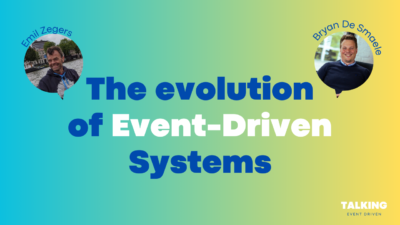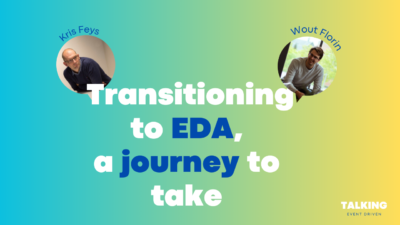A day in the life of a Google Cloud Engineer
Hi! My name is Pieter Daems, and I’ve been working as a Google Cloud Engineer at Cymo for a little under a year now. This means that I’m responsible for researching, configuring and maintaining Google Cloud implementations in several projects. In this blog post, I’ll take you through a typical day and week as a Cloud Engineer, and tell you about what it’s like to work at Cymo. Read on to find out more!
People sometimes say that variety is the spice of life, and that’s certainly true as a Cloud Engineer. I start my day knowing that it will be filled with unique challenges and opportunities. The Google Cloud ecosystem is vast and constantly growing, and of course I use other technologies as well. Among others, I’ve worked with Google Cloud’s tools, Bash, YAML, and Terraform. I do most of my development work in Python and Go. In addition to the varied development work, there’s always research to be done and new things to learn.
Researching and testing new technologies is a large part of why I love this job so much. No day is the same: one day I’ll be devising a workflow, and the next I’ll be implementing a new cloud build. Because those technologies are often brand-new, making them work can be an interesting challenge. Debugging and improving infrastructure is like solving a very satisfying puzzle when you have an analytical mindset. If I get stuck somewhere, I can always turn to my colleagues or switch to another task!
Most of our employees also have a lot of variety in their clients. I’ve been working on a large project for the same client for a couple of months now, yet it’s anything but repetitive. In reality, it boils down to several minor projects that follow each other. I love the variety, since it keeps me on my toes and prevents me from getting bored.
At my current client, we work in sprints that last two weeks. This means that we start each day with a stand-up meeting. We look at what needs to be done, which tasks have priority, and divide those accordingly. Most of my colleagues are spread across multiple clients, so they tend to set their own priorities instead. Since we’re often the only Cymo employees at those clients, you need a bit of a hands-on attitude, but my colleagues are always happy to lend a helping hand in case of need.
Cymo also organises two stand-up meetings of their own each week. One of these happens on Friday, which is our designated team meetup day at the office. Besides any required office attendance from our clients, we can work from wherever we want. If the commute is especially long or a lot of attendance is required, Cymo doesn’t scare away from reminding clients we should be able to balance our work and private lives. I’m glad that we can work remotely or hybrid, since it lets me choose whether I’d like to socialise a bit or go into focus mode that day.

Other than the stand-up meetings, I have a lot of freedom to decide how I divide my day. In the first few months, I have spent a lot of my time on research because of the onboarding process. On a typical day, I will research new techniques and the best ways to implement them for a while, and then work on the actual implementation and configuration. I really like that self-improvement and education is part of my workday. There’s no need to research things after working hours, since it’s part of the job!
Cymo has also allowed me half a day each week to spend on education and general research that is not necessarily related to the projects I’m working on. They granted me access to the Google Cloud Skills Boost educational environment powered by Qwiklabs, where I can spend time as I see fit. This allows me to diversify my skill set and prepare for future projects and clients. If there are relevant events like Google Cloud Next, we can also attend either in-person or virtually – if Cymo doesn’t have a booth there already.
Cymo is a close-knit team of just a few employees, so there’s a lot of ad-hoc knowledge sharing going on as well. I often like to say, “if you have questions, Google has the answers”, and while this remains true, I can always depend on my colleagues. I like working in a smaller team because it keeps communication simple and efficient. Since we’re a start-up, we get to help shape the future of the company, which I love!
My colleagues have more experience, so they don’t just guide me through a particularly complicated process, they also know where to find the required knowledge. For example, my colleague Kris started a course, but quickly realised that his expertise had already eclipsed the course since it turned out to be more of an introduction. He pointed me in the right direction, gave me some pointers and his credentials, and let me complete the course in his stead.
In short, being a Cloud Engineer at Cymo means that you have plenty of freedom and flexibility, with respect for the work-life balance. You will work in a small team and for a diverse set of clients, with lots of knowledge sharing and educational opportunities.
Are you also passionate about all things cloud? Do you love to keep learning on the job while working on various interesting projects? Want to help shape Cymo’s future? We’re looking for a Cloud Engineer to join our team, so contact us and we’ll discuss the possibilities together!
Contact us
Written byPieter Daems
Read more

PODCAST (S1 - E8): the evolution of event-driven systems
In this episode, Emil Zegers shares his insights with Bryan on how he thinks building a design-first strategy and mapping that to your runtime deployment is the way to go when it comes to Event-Driven Systems. Do you agree?

PODCAST (S1 - E7): the journey of becoming an Event-Driven Organisation
In this episode, Kris Feys shares his insights with Wout on how he thinks EDA is the future, but comes with a lot of change... Change that not everyone is ready for. Are you?

PODCAST (S1 - E6): the role of AI in Event-Driven Architecture
In this episode, Dunith Danushka shares his insights with Bryan on how he thinks EDA has the ideal foundation to build on with many technologies (and trends). It's a must-watch for anyone wanting to optimize their event-driven journey!
